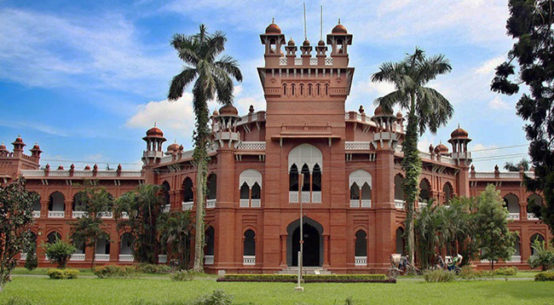The China-South Asia Center for Sociocultural Studies (CSCSS) at North South University (NSU) held a seminar focusing on the intricate relationship between the Belt and Road Initiative (BRI) and the geopolitical communication landscape in South Asia, a press release said Sunday.
This seminar was held at the university’s Syndicate Hall, drawing attention to the pivotal role of communication in understanding regional geopolitics.
Dr. Anis Rahman, a faculty member from the University of Washington, Seattle’s Department of Communication, led the seminar as the keynote speaker, providing valuable insights into the geopolitical dynamics shaped by the Belt and Road Initiative. The conference began with an introduction by Dr. Harisur Rahman, CSCSS Coordinator and Associate Professor in the MCJ Program, setting the stage for a deep dive into the subject matter.
The event featured critical discussions by Prof. Sk. Tawfique M. Haque, Dean (IC) of the School of Humanities & Social Sciences and Director of SIPG at NSU, alongside Professor Mohammed Nuruzzaman, Professor of Political Science at NSU. Their contributions and Dr. Rahman’s expertise sparked a vibrant dialogue among the attendees. Dr. Anis Rahman said in his speech that the representation of China in the media is divergent across countries. Western and Indian media are critical and primarily pessimistic about their portrayal of BRI, while the Bangladeshi and Pakistani media see BRI in a positive light. These portrayals are reflections of the national interests of the respective countries.
For China, the BRI is a branding issue as the development and connection we see today existed before BRI. In his discussion, the Director of CSCSS, Professor Sk. Tawfique M. Haque said, “China has yet to develop a counter-narrative of Western perspectives, and its existing media is seen as ‘state-sponsored media,’ which may not seem neutral to the masses. He also highlighted the Bangladesh government’s ability to maintain a balanced relationship with India and China.” In addition, Professor Nuruzzaman said China’s resurgence as a global force echoes its historical stature, challenging but not entirely displacing the United States’ dominance. While the U.S. champions values like human rights, liberalism, and democracy, China advocates for a “shared future for humanity.”
The session was marked by a robust exchange of ideas, with questions from participants enhancing the dialogue.
This seminar was just the beginning of a series intended to foster academic and practical discussions on sociocultural and economic issues relevant to China, South Asia, and beyond. The CSCSS aims to support scholarly research and dialogue through an interdisciplinary approach, contributing significantly to understanding regional and global dynamics. It is a multidisciplinary initiative to facilitate the academic study of sociocultural and economic issues through evidence-based and empirical research at NSU.


